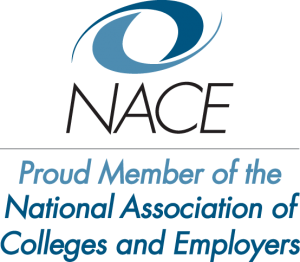A recent article from the Association for Talent Development dives into the concept of hiring for fit, discussing how hiring to a corporate culture relates to equal employment opportunity and workplace diversity. The author raises an interesting point – “Could building a culture based on ‘fit’ keep out those who are different in some way?”
If done scientifically, it is possible to hire individuals that fit a core set of company values while also hiring a diverse group of individuals in terms of sex, race, ethnicity, thought, and experience. If done non-scientifically, hiring for “culture fit” can introduce bias and discrimination into the hiring process, and violate equal employment opportunity legislation.
Want to know something even scarier? Most people who discriminate based on subconscious bias don’t even realize they’re doing it. [1]
Incentives to Hire based on Fit
There is a large body of research highlighting the positive job outcomes of employee fit.
A 2005 meta-analysis (a larger study of multiple previous studies) has shown that employees who fit well with their co-workers, supervisors, and organizations tend to have:
- greater job satisfaction
- identify more with their company
- were more likely to stay with their organizations
- were more committed to their organizations
- showed higher job performance
Hire for Fit without Bias
So, how do companies reap the benefits of employee fit without engaging in discrimination based on subconscious bias?
The term “culture fit” can often be misunderstood. The term has strayed from its origins, intended to reflect an analysis of organizational culture, and instead is often used to describe subjective perceptions of candidate fit. It has become a “weaponized phrase” used by interviewers as a basis to reject job candidates [2]. In fact, companies like Facebook are banning the word “culture fit” in the hiring process in an effort to reduce unconscious bias and force interviewers to provide more descriptive information.
The concept of hiring based on culture fit is increasingly eliciting worries of bias and discrimination – and rightfully so. If culture fit is assessed through non-structured interviews or hunches of hiring managers, then the process should elicit worry.
That’s where predictive analytics and hiring technologies offered by jobZology® come to save the day. It IS possible to hire for fit while also avoiding the subconscious bias that often gets us into trouble. In order for hiring for fit to be effective, systematic process for evaluating work environments and quantifying candidate fit must be in place.
Company Fit
Forget “culture fit” and the baggage that comes with it. At jobZology, we use predictive science based on decades of research to measure Company Fit based on a scientific understanding of your organization and the systems or processes that are prioritized on a day-to-day basis.
Company Fit isn’t about looking alike or having similar backgrounds. Your happiest and most successful employees will be the ones who are on board with the company mission and the way that things get done within the organization.
The environment that a company creates for its employees is based on the values, beliefs, attitudes, and behaviors perpetuated by the overall group. These core values and the processes reinforced within the organization can be objectively studied and used as the basis for assessing fit.
Therefore, candidates whose values, interests, and behaviors are congruent with the existing organization are likely to be a good fit for the organization. Using predictive science to measure such congruence enhances employee retention and saves companies from hefty costs associated with turnover.
Company Fit is one part of the equation. How well an individual is fit to the job and how well their behavioral patterns fit the organization are also critical factors in the hiring process. Therefore, the jobZology® Talent Match software uses a comprehensive approach to help organizations find candidates who will be satisfied in the job and the company; and we know from decades of research that employee satisfaction is related to increased performance and enhanced organizational commitment.







